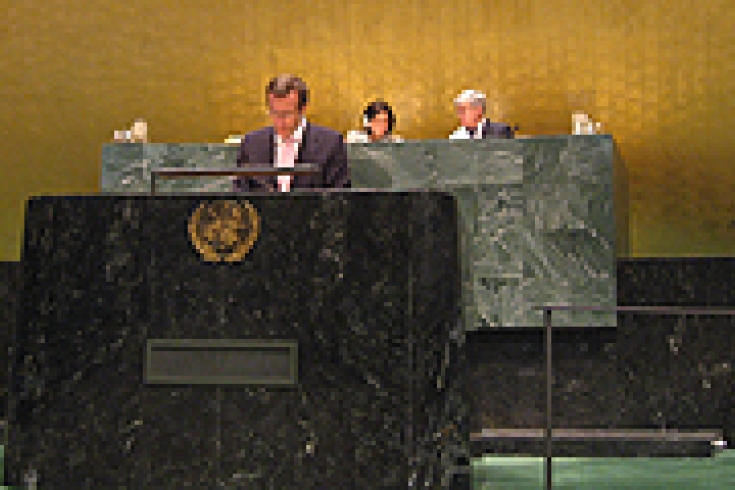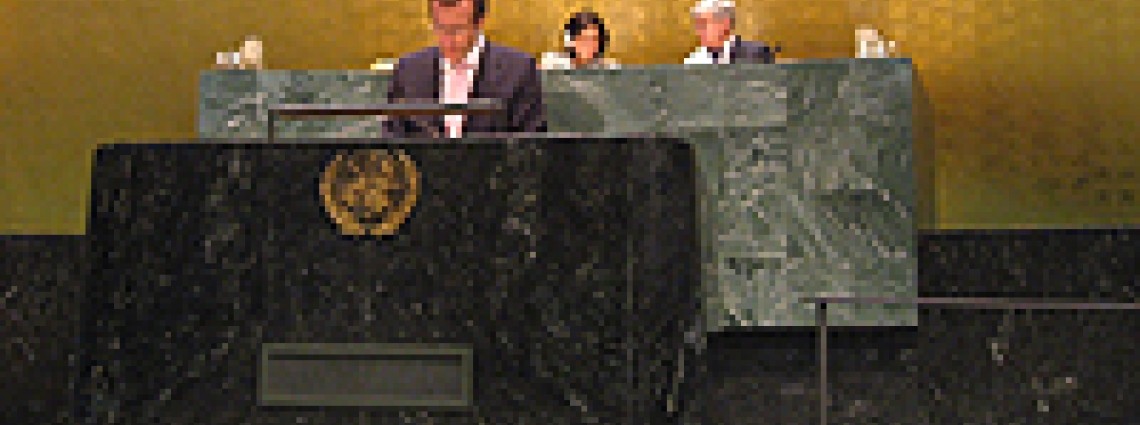Executive Secretary addresses United Nations General Assembly
The Executive Secretary of the Preparatory Commission for the Comprehensive Nuclear-Test-Ban Treaty Organization (CTBTO), Mr. Tibor Tóth, gave a statement before the 61st Session of the United Nations General Assembly.
In his statement, Mr. Tóth said that the international expression of concern and condemnation of the announcement by the Democratic People's Republic of Korea to have conducted a nuclear test on 9 October was important and encouraging. This reaction demonstrated the international community's commitment to a universal and verifiable nuclear test ban. He expressed his hope that the international community would refocus its attention on bringing the Treaty into force and to complete the build-up of the CTBT verification system.
Mr. Tóth reported that progress had been made in promoting the entry into force of the Comprehensive Nuclear-Test-Ban Treaty (CTBTO) with 176 States having signed and 135 having ratified the Treaty. Reporting on progress made in the establishment of the verification regime, Mr. Tóth said that nearly 190 monitoring stations were providing data to the International Data Centre (IDC). The IDC is currently distributing data products to 780 institutions in 93 States Signatories.
The Executive Secretary also referred to the potential civil and scientific benefits of the CTBT verification technologies, in particular the potential contribution of monitoring data to tsunami warning institutions. Mr. Tóth expressed the hope to be able to develop further the important synergies between the CTBTO capabilities and the international scientific community.
The Executive Secretary recalled that the CTBT's purpose was to establish a legally binding norm against nuclear testing and to set up a credible system to verify compliance with this norm. He emphasized that this work would only prove its worth once the Treaty has entered into force. Finally, he expressed his hope that those States whose ratification of the Treaty was necessary for entry into force would come to a positive decision when considering the Treaty's value for their national security and for international security.

Executive Secretary, Tibor Tóth addressing the United Nations General Assembly
2 Apr 2008
